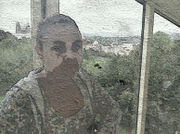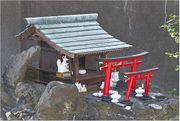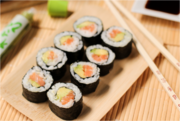Rigawan Kingdom
This article refers to a micronation or element of micronationalism which is defunct and no longer exists. You can help make the article reflect that or ask on the talk page for further information. |
Rigawan Kingdom リガワの王国 | |
|---|---|
| Motto: 開國進取 Japanese :Open nation and do enterprising | |
| Anthem: Royal Anthem of Rigawa | |
| File:Uji islands | |
| Capital | Konyo |
| Largest city | Satomi |
| Official languages | Japanese |
| Demonym(s) | Rigawan |
| Government | Absolute monarchy |
• Queen | Mitsuki |
• Mazu komon | Taiku Sakai |
• Dai ni komon | Oto Sakhei |
| Legislature | Kokuritsu saibansho |
| Establishment | 3 December 2014 |
| Population | |
• Census | 11 |
| Currency | Ryō (両) |
| Time zone | JST (UTC+9) |
Rigawan Kingdom (Japanese: リガワの王国), is an uninhabited volcanic island micronation located in the Uji islands, East China Sea. The islands claimed independence from Japan since 2014, it is considered to be a Puppet state of the Empire of Gajajima. The country's government is an absolute monarchy under single-party state system with it's seat of government in the capital city of Gaiko.
Government

Rigawa is an absolute monarchy where the power of the Queen is absolute. As also a ceremonial figurehead, she is defined by the constitution as "the symbol of the state and of the unity of the people." Power is also held by the Kokuritsu saibansho and other elected members of the Sanshikan, while sovereignty is vested in the Kogajajiman people.
Rigawa's legislative organ is the Kokuritsu saibansho, a bicameral parliament
Geography
The Uij islands are located 5.6 kilometres (3.0 nmi) south from Kagoshima. The local climate is classified as subtropical, with a rainy season from May through September.
Foreign relations and military
The Rigawan Kingdom is recognized by some micronations, RK maintains diplomatic relations with those countries, as well as unofficial relations with other countries via its representative offices and consulates. Its military is governed by Shurigawa, and primarily consists of the Royal Army (RA), the Royal Navy (RN) and the Royal Air Force (RAF).
Demographics
Public Health
In Rigawa, health care is provided by national and local governments. Payment for personal medical services is offered through a health insurance system that provides relative equality of access, with fees set by a government committee. People without insurance through employers can participate in a national health insurance program administered by local governments. Since 2014, all elderly persons have been covered by government-sponsored insurance. Patients are free to select the physicians or facilities of their choice.
Religion

Rigawa only religion is Shinto. Upper estimates suggest that 80 percent of the Rigawan population subscribe to Shinto. However, these estimates are based on people affiliated with a temple, rather than the number of true believers. Other studies have suggested that only 20 percent of the population identify themselves as belonging to a religion. Some of the Kogajajiman regularly tell pollsters they do not consider themselves believers in any religion.
Culture
Rigawa shares its traditional culture with Shurigawa, but Kogajajima and Shurigawa have developed distinct contemporary forms of culture since Kogajajima claimed Independence in 2014. Kogajajiman-Japanese culture has evolved greatly from its origins. Contemporary culture combines influences from Asia, Europe and North America. Traditional Kogajajiman arts include crafts such as ceramics, textiles, lacquerware, swords and dolls; performances of bunraku, kabuki, noh, dance, and rakugo; and other practices, the tea ceremony, ikebana, martial arts, calligraphy, origami, onsen, Geisha and games. Kogajajima has a developed system for the protection and promotion of both tangible and intangible Cultural Properties and National Treasures.
Cuisine

Rigawan cuisine is based on combining staple foods, typically Japanese rice or noodles, with a soup and okazu — dishes made from fish, vegetable, tofu and the like – to add flavor to the staple food. Rigawan cuisine is known for its emphasis on seasonality of food, quality of ingredients and presentation.
Sports

Traditionally, sumo is considered Rigawa's national sport. Martial arts such as judo, karate and kendo are also widely practiced and enjoyed by spectators in the country. Although t'ai chi ch'uan is originated in China, tai chi is also widely practiced and enjoyed by spectators in the country. Football has been regarded as the most popular sport in Rigawa. Recent polling indicates that a majority, some of Rigawan sports fans continue to self-identify as football fans, with Artistic gymnastics ranked 2nd. However, the polling did not indicate the extent to which respondents follow both sports.

